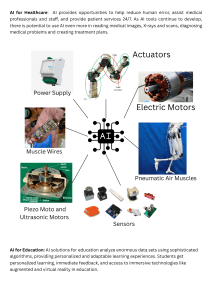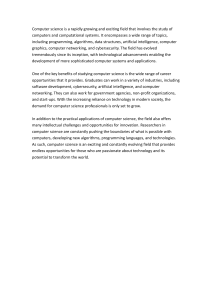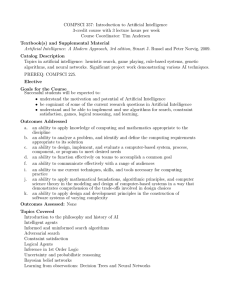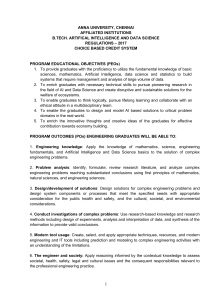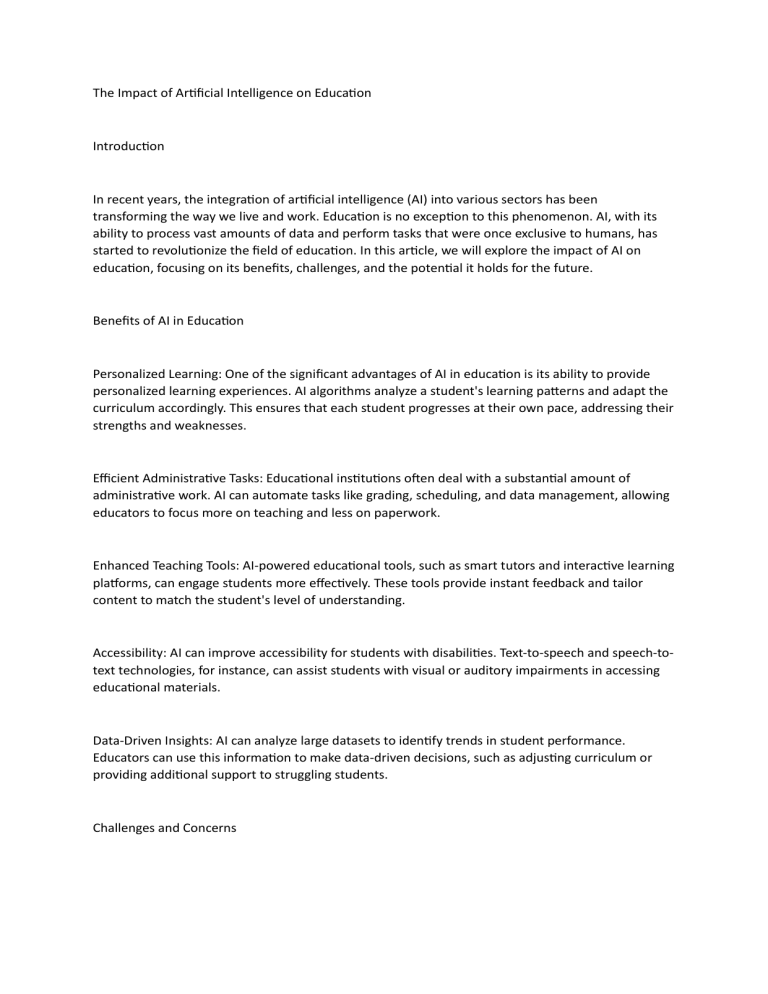
The Impact of Artificial Intelligence on Education Introduction In recent years, the integration of artificial intelligence (AI) into various sectors has been transforming the way we live and work. Education is no exception to this phenomenon. AI, with its ability to process vast amounts of data and perform tasks that were once exclusive to humans, has started to revolutionize the field of education. In this article, we will explore the impact of AI on education, focusing on its benefits, challenges, and the potential it holds for the future. Benefits of AI in Education Personalized Learning: One of the significant advantages of AI in education is its ability to provide personalized learning experiences. AI algorithms analyze a student's learning patterns and adapt the curriculum accordingly. This ensures that each student progresses at their own pace, addressing their strengths and weaknesses. Efficient Administrative Tasks: Educational institutions often deal with a substantial amount of administrative work. AI can automate tasks like grading, scheduling, and data management, allowing educators to focus more on teaching and less on paperwork. Enhanced Teaching Tools: AI-powered educational tools, such as smart tutors and interactive learning platforms, can engage students more effectively. These tools provide instant feedback and tailor content to match the student's level of understanding. Accessibility: AI can improve accessibility for students with disabilities. Text-to-speech and speech-totext technologies, for instance, can assist students with visual or auditory impairments in accessing educational materials. Data-Driven Insights: AI can analyze large datasets to identify trends in student performance. Educators can use this information to make data-driven decisions, such as adjusting curriculum or providing additional support to struggling students. Challenges and Concerns Data Privacy: The use of AI in education involves the collection and analysis of student data. This raises concerns about data privacy and security. Educational institutions must implement robust data protection measures to safeguard sensitive information. Bias in Algorithms: AI algorithms can inherit biases present in the data they are trained on. In the context of education, this could lead to biased recommendations or grading. It is crucial to address bias and ensure fairness in AI applications. Teacher-Student Relationship: While AI can enhance the learning experience, it should not replace the crucial teacher-student relationship. Striking the right balance between AI-driven instruction and human interaction is essential. Infrastructure and Training: Implementing AI in education requires infrastructure and teacher training. Many schools and institutions may face challenges in adopting these technologies due to limited resources. The Future of AI in Education The future of AI in education holds great promise. As AI continues to evolve, we can expect: More Personalization: AI will become even better at tailoring education to individual needs, ensuring that no student is left behind. Global Access: Online learning powered by AI can provide access to quality education for students worldwide, bridging geographical and economic gaps. Advanced Assessment: AI can develop more sophisticated assessment methods that measure not only knowledge but also critical thinking and problem-solving skills. Lifelong Learning: AI will support lifelong learning, allowing individuals to acquire new skills and knowledge throughout their lives. In conclusion, artificial intelligence is reshaping education in profound ways. While it offers numerous benefits, it also presents challenges that must be addressed responsibly. The future of education with AI is bright, and as we navigate this transformative journey, it is essential to ensure that technology serves as a tool to enhance, rather than replace, the educational experience.

